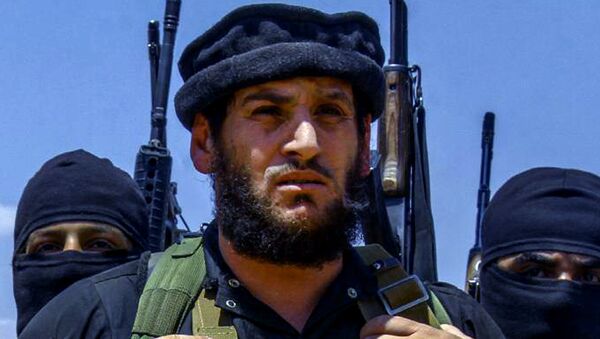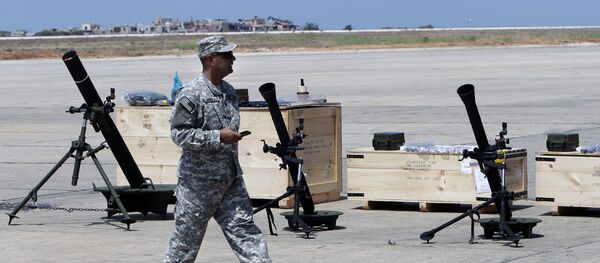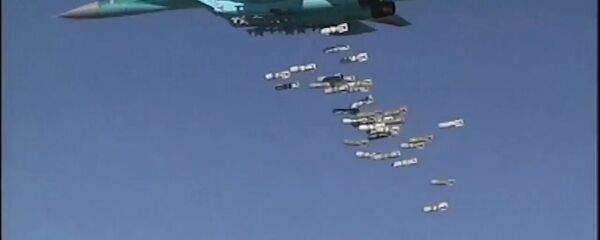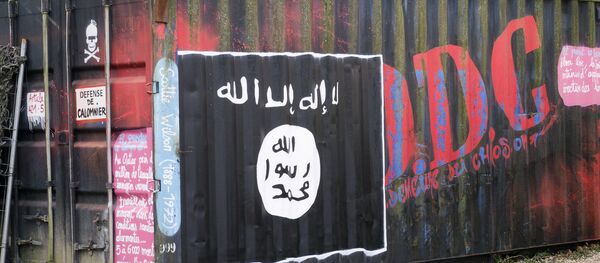However on August 31, the Russian Defense Ministry confirmed Russia’s Su-34 fighter-bombers killed up to 40 Islamic State militants in the southern ranges of Aleppo, including Al-Adnani.
The Pentagon claimed it had no information on whether Russia had targeted a second-in-command of the Islamic State.
Reuters even cited one of the US defense officials who was "speaking on condition of anonymity", as saying that "Russia's claim is a joke".
Russian experts however explained why Russia's version is the more likely one.
"According to the Pentagon, Abu Muhammad Al-Adnani was killed in one of the districts of Al Bab to the north-east of Aleppo," Anton Mardasov, the head of the Department of Middle Eastern Conflicts of the Moscow-based Institute for Innovative Development told Russian online newspaper Vzglyad.
The political analyst further said that the Islamists are fleeing the city as the Turks have every intention to take the city to be able to finally "shut down the Kurdish project."
After the Turks launched their "Euphrates Shield" operation, the militants who were stationed around the city of Jarabulus, have moved to Al Bab. Earlier the Kurds wanted to unite their cantons through this particular city, he said.
However there are reports that he could have been killed during an airstrike on the militants' position in another district of Aleppo. The expert also mentioned that the Pentagon claimed Al-Adnani was killed in a Predator drone attack.
Mardasov said that according to the Russian version, the terrorist was killed during Russia's airstrike on the Ma'arat Umm Hawsh, a village in northern Aleppo Governorate.
"It is a settlement to the west of Al Bab, on the outskirts of the town of Маrеа. On August 30-31 the Kurds launched an assault of the town. According to some trustworthy sources, Russia's airspace forces have been providing aerial coverage to the Kurdish assault. Hence there are chances that Al-Adnani was killed on August 30 as the result of these airstrikes," the expert said.
Semen Bagdasarov, director of the Center for Middle Eastern and Central Asian Studies told the newspaper that besides the fact that Russia, unlike the US, always provides video evidence of its airstrikes, there is another factor which allows to believe that the Russian version is more trustworthy.
"It is only logical to suppose that the high-ranking Daesh commander has been in that particular district then," he said.
Bagdasarov also noted that Al-Adnani, Syrian by origin, was not simply a high-ranking Daesh militant but was in command of the military operations on the Syrian territory.
"The Americans therefore claim that he was killed in another district, closer to the Turksih border, while there was absolutely no need for him to be there.Hence the geography and logic speak in favor of the Russian version," he explained.
Anton Mardasov however said that there are alternative points of view.
First, he said, Al-Adnani could have been killed by the Kurds, however it remains unclear what the Daesh strategist "might have lost" in the city which has been under active attack of the Kurdish forces.
"On the other hand, there were reports of high-ranking Daesh commanders having been killed at the front line," he said.
Secondly, the Islamists often stage their deaths to cover up their traces and this might have been the case with Al-Adnani.
Not long before the elimination of Al-Adnani there were reports that about 80 Daesh militants had been killed by the international coalition.
It might be true, he said, as after that the Islamists started experiencing losses but at the same time there were reports that some of the "eliminated commanders" were, in fact, alive.
And finally, Al-Adnani might have been killed as the result of internal Daesh conflict, he suggested.
"Such information was spread by the militants themselves," he said.
It was reported that he was killed not by an airstrike but after his personal car was blown up. The expert suggested that it might also have been true, taking into account the internal challenges within the Islamic State.
According to the expert, such a variety of narratives demonstrates that even though there are some agreements there is no strict coordination of activities between the sides to the Syrian conflict.
"In fact, everyone is striking whoever he wants and it results in such incidents where it is absolutely unclear what has happened and who was behind it," he finally stated.







